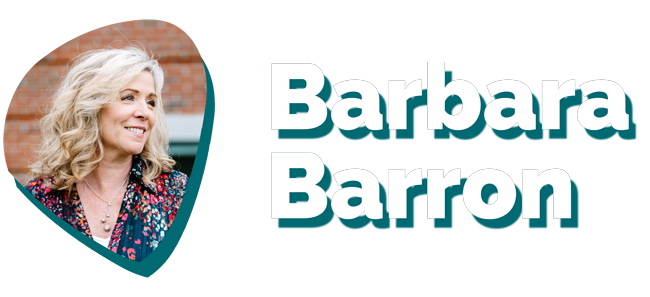October 6th, 2021 by Barbara Barron
Based on the popularity of my previous article, “The Four Things All Great Schools Do in Advancement“, and the wonderful suggestions that came to me via e-mail and Twitter, I decided to revisit the topic with three more observations.
Like before, these are all things that I have witnessed firsthand in my twenty-plus years of being in the world of advancement at independent schools.
As you read, as yourself: “How many of these are happening at my school?”
1. Advancement professionals have a seat at the table to help the school move towards a true culture of philanthropy.
What this looks like: That seat is at the Board table and at the leadership team meeting. The advancement director is a trusted thought partner. The entire advancement team has access to important information about students and families that is germane to their ability to create and maintain trusting, respectful relationships with families. Other members of the leadership team know they can trust the advancement office with confidential information. They follow up on requests from the advancement office.
Not too long ago, the father of a student died suddenly. In addition to the many cherished roles he played in the lives of his family, he was also a great volunteer, offering his catering services to our school at a deep discount. Being told of this tragedy as soon as the Dean of Students learned it made it possible for my team to reach out to the catering team to offer our condolences. Further, since we knew of his other significant connections in the community, we were able to help share the sad news to people who would not have known right away and might have risked an insensitive moment. His family was so grateful. The student’s mom was able to focus her attention where it needed to be.

2. There is a spirit of true leadership and mentorship throughout the organization modeled by the Head of School.
What this looks like: Heads with deep experience are eager to share and mentor advancement staff. Those Heads with less development experience seek the counsel and recommendations of their Directors. They respect standing meetings with their directors and make time on their busy calendars for strategy planning sessions prior to important donor meetings. They keep good notes or share meeting notes verbally (and immediately) so they can be recorded by the department. They never go rogue when a plan has been agreed upon and they follow through with assignments.
Over my career, I’ve worked with many Heads, with a wide range of both experience and interest in advancement work. I’d rather have a Head with less experience who is eager to learn than one who believes he already knows everything! From the start, I have insisted on a standing meeting. For me, it’s early in the week (Tuesday late morning is my favorite). That’s the time to get aligned on strategy, capture any notes or intel the Head is holding, and create a robust to-do list for the week. Ask for that. If you’re not sure how, I suggest you say “For me to do my very best work, I need a reliable meeting time with you each week.” The best Heads will want to give you that. If your Head is not willing to do that, and protect that time against all but the most urgent of interruptions, that’s a warning signal you should heed.
Have you subscribed to the newsletter yet? It only takes a minute.
3. School trustees are carefully and intentionally selected and serve enthusiastically in their roles to secure the vital resources the school needs to deliver on its mission. They fully understand and embrace their responsibilities.
What this looks like: The Committee on Trustees has a well-designed process for identifying and vetting prospective trustees. The interview questions and process enable the school to learn as much as possible about the prospect’s skills and willingness to serve, including their responsibilities for securing charitable support for the school. All new trustees receive a thoughtful, comprehensive orientation, including information from the professional staff. There is a robust and valuable ongoing professional development program, All trustees are fluent in their roles and responsibilities. They give meaningfully to the school, keeping it a top philanthropic priority during their tenure. They give first and last to all fundraising campaigns and are willing to speak to others in the community about why they support the school. When asked to help cultivate, solicit, and steward donors, they do so with alacrity. They follow through and report back to the advancement office.
This is arguably the most important committee of the Board. And one you as the advancement professional should be closely aligned with. Over my career, both inside and consulting with schools, I am a huge advocate of the Director of Advancement sitting in on this committee’s meetings to provide real-life intelligence, first-hand experience, and relevant giving information to the committee when considering a prospective trustee. After all, who knows better how this person embraces (or doesn’t) the philanthropic activities of the school? Do they fulfill volunteer obligations? Do they give early and generously, within their individual means? If you’re not in these meetings, do what you must to get invited!
In closing…
As I wrote out these three, a few more came to mind. I’m sure you had the same feeling.
Like before, I’m equally interested in what you have noticed from your vantage point. What is it that great schools do when it comes to advancement? And what can we do to bring these ideas to the schools that need them most?
As always, my inbox is open – and thank you for what you’re doing.
Stay well,
Barbara Barron

[email protected] // @BBAdvancement
About the Author
Barbara Barron is one of the most respected and highly sought-after independent advancement professionals in the country, having worked with dozens of schools in every corner of the United States. She has raised over $20 million for schools where she served as the Director of Development
Barbara is a New York Times bestselling author, speaker, and presenter who currently advises dozens of schools in various capacities. She is considered a thought leader in the world of advancement, with her writing widely shared by professionals in development offices worldwide.
She can be reached via email at [email protected]







